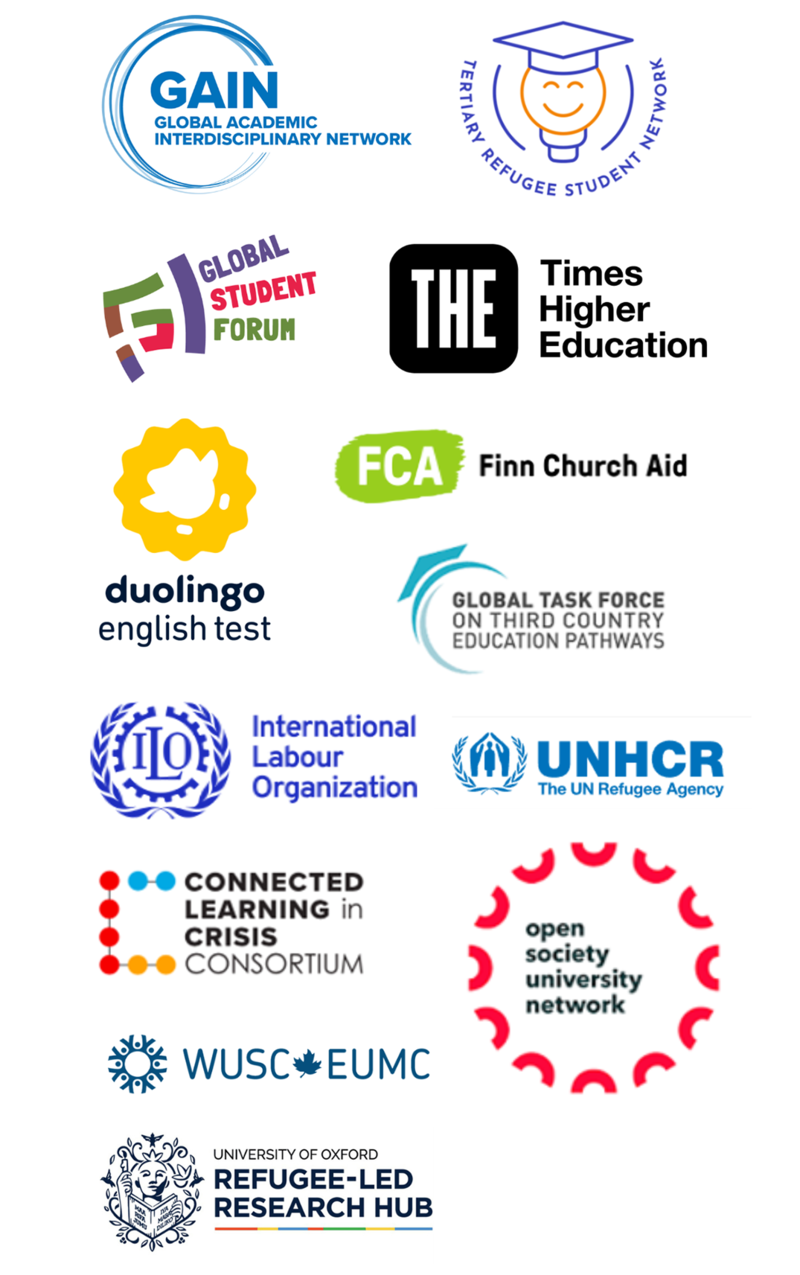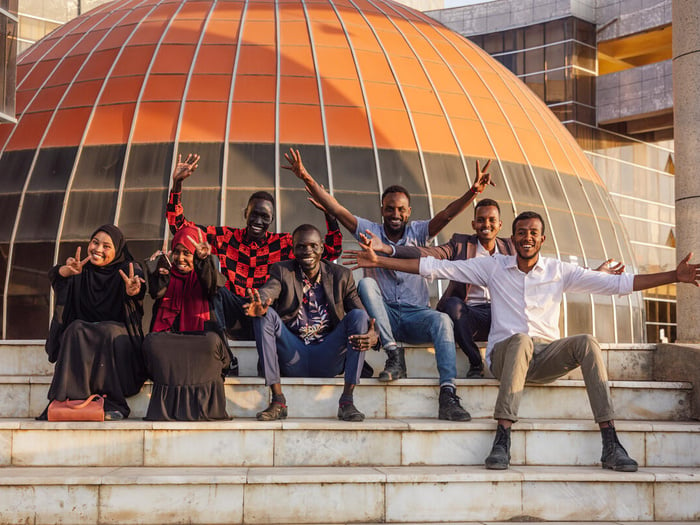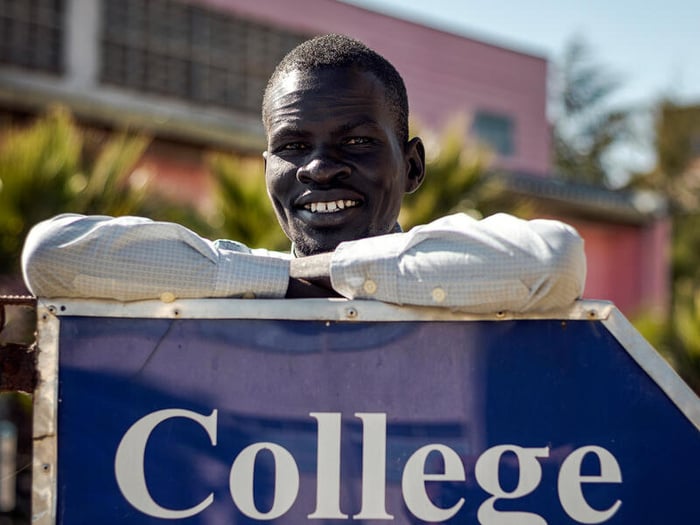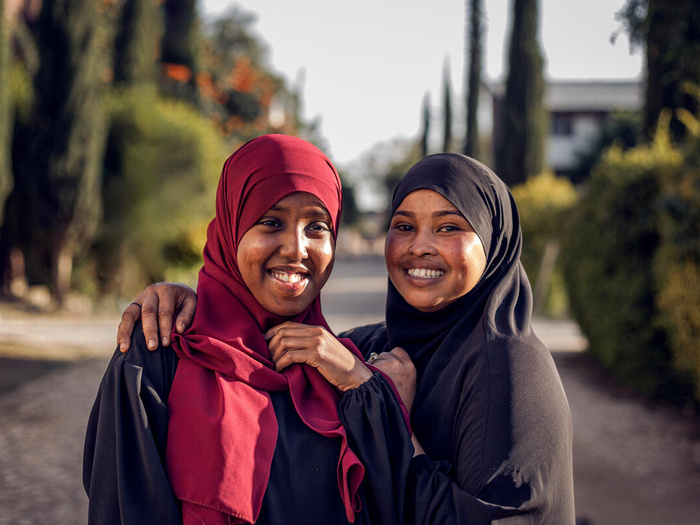15% by 2030: Global pledge on refugee higher education and self-reliance
15% by 2030: Global pledge on refugee higher education and self-reliance

Call to action
UNHCR and its partners have come together to pledge on refugee higher education and self-reliance to guarantee that 15% of refugee youth will have access to the transformative power of higher education by 2030.
The majority of refugees are displaced for much of their education—fewer than half finish secondary school.
Text and media 43
Those who need a chance to develop advanced skills, earn a higher education qualification, degree or professional certification that will allow them to contribute to the communities, the countries that host them or their country of origin.
Today, only 7% of refugee youth are enrolled in higher education.
Governments, higher education institutions, students, foundations, civil society, companies, faith-based organizations and many others recognize the value of higher education and high-quality technical and vocational development and training (TVET) as a means to advance national economic development, civic participation, innovation and progress on the Sustainable Development Goals.
Now is the time to come together to guarantee that 15% of refugee youth, alongside young people in host communities, will have access to the transformative power of higher education, including TVET and connected higher education opportunities, by 2030.
15by30 Global Pledge Objective
Expand higher education opportunities for refugees across the five pillars of the 15by30 roadmap.
This means new or expanded programmes, scholarships, policy development, support for refugee student-led initiatives and partnerships between well-resourced and less-wealthy institutions in refugee-hosting countries to expand TVET, university scholarship, connected higher education, third-country education pathways, and bridging programmes that result in more opportunities for refugees to enrol in higher education.
Text and media 46
Resources
15by30 Roadmap
- 15by30 Roadmap: Expanding Higher Education, Skills and Self-Reliance for Refugees
- 15by30 Roadmap Agenda
How to get involved
Text and media 59
Expanded higher education opportunities are needed in:
- enrolment in colleges and universities in first countries of asylum;
- DAFI and other refugee-specific scholarship programmes;
- Technical and Vocational Education and Training (TVET);
- connected higher education;
- complementary education pathways to third countries.
Dedicated support and investment are also needed in core supporting areas:
- bridging and transition programmes;
- language training;
- ICT skills development;
- internships, apprenticeships and mentoring;
- student leadership and advocacy.
Pledge leaders
The mega-pledge is led by:
- Times Higher Education
- Open Society University Network
- Tertiary Refugee Student Network
- Duolingo
- Global Academic Interdisciplinary Network
- International Labour Organization
- Global Student Forum
- Finn Church Aid
- Connected Learning in Crisis Consortium
- Global Task Force on Complementary Education Pathways
- World University Service of Canada (WUSC)
- Refugee Led Research Hub
- UNHCR, the UN Refugee Agency.
To get involved in expanding refugee higher education and skills, join the Tertiary Education Task team by contacting Manal Stulgaitis ([email protected]) and Arash Bordbar ([email protected]).

Calendar
 2025
2025
High Level Officials Meeting (HLOM)
Critical pledge areas and demand-driven examples

Thematic area: Scholarships and enrolment
-
States pledge multi-year or endowment funding for the DAFI scholarship programme.
-
Universities and philanthropists commit a percentage of their overall education investments to enable refugees access to higher education institutions in refugee-hosting or third countries.
-
Scholarship providers earmark a percentage of places for refugee students.

Thematic area: Connected higher education
-
Establish connected learning centres in locations where refugees cannot otherwise access higher education.
-
Ensure that major connectivity infrastructure projects are expanded in refugee-hosting areas.
-
Develop transnational education initiatives between higher education institutions to allow refugee youth to study remotely.
-
In-kind donation and distribution of laptops or equipping refugee-run learning centres with laptops.

Thematic area: Technical and vocational education and training
-
Technical and vocational education and training systems and institutions commit to including a certain percentage of refugee students.
-
TVET training for refugees is tied to identified labour market demands, including in third-country labour markets.
-
Research is undertaken to strengthen the evidence base on the role of TVET in the humanitarian-development nexus and how to effectively scale refugee-inclusive TVET programmes.

Thematic area: Student leadership
-
Commit multi-year funding for the Peer to Peer Solutions Advisor Network to pilot in ten countries over the next four years.
-
Fund refugee- and student-led organizations to maintain their essential efforts towards advocacy and organization, as well as supporting the programmes and services they provide to connect refugee youth to information about education and employment pathways, youth network, mentoring and other services.
-
Financial or in-kind support to the Global Refugee Youth Leadership, Public Speaking, Advocacy Training series and the Tertiary Refugee Student Network.

Thematic area: Partnership and responsibility sharing
-
Higher education institutions (HEI) establish bilateral partnerships to support the increased enrolment of refugee students in higher education in host countries.
-
University networks commit to promoting refugee student enrolment across their membership by creating dedicated scholarships and/or targeted financial aid, recruitment in refugee-hosting areas and support for member HEIs in refugee-hosting countries to enrol refugees.

Thematic area: Data and evidence
-
Global or regional research to build evidence on the impact of refugee higher education on host country economies, national development objectives, sustainable development goals, political economy analysis of inclusive refugee higher education situations, and outcomes of higher education for refugee students and families.
-
Provide technical expertise to develop a new data collection methodology underpinning the overall 15by30 roadmap to ensure it is effective, efficient, and fit for purpose.
-
Data collection is refined to ensure that refugee scholarships at universities large and small in every corner of the world are counted.

Thematic area: Solutions
-
Create formal employment opportunities for refugee graduates to transition to employment in refugee-hosting countries.
-
Internships, apprenticeships, sector-specific upskilling or on-the-job training opportunities link refugee students and graduates to viable employment.
-
Scalable remote work opportunities and labour mobility pathways programmes tied to technical and vocational education and training provide other innovative post-graduate solutions for refugees.



